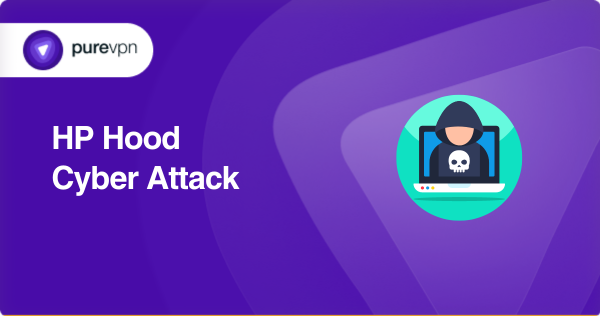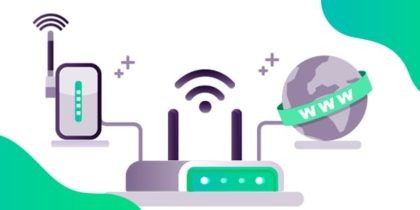Table of Contents
Want to know what happened in the HP Hood cyber attack? How did Hood strike? How did they cope? Keep reading; it is something we all just be aware of. The food industry has been the new target of hackers in recent times. The reasons are many, which we will discuss in this article.
HP Hood is an American dairy company that produces various dairy products such as milk, cream, ice cream, yogurt, cottage cheese, sour cream, and dairy-based drinks. The company was founded in 1846 in Charlestown, Massachusetts, and is now headquartered in Lynnfield, Massachusetts.
In recent years, hacking, data breaches, and ransomware attacks have compromised the company’s operations, financial stability, and reputation.

Why are food companies a target today?
Food companies are the cherry on the cake for hackers, some of the reasons are:
- Reliance on technology: One reason is that the food industry has increasingly relied on technology and digital systems to manage its operations, supply chain, and distribution networks. This dependence on technology has created new vulnerabilities and opportunities for cybercriminals to exploit.
- Massive data: Food companies also handle large amounts of sensitive data, such as customer information, financial records, and intellectual property. This data can be valuable to hackers who can use it for identity theft, financial fraud, or to gain a competitive advantage.
Consequences of a cyber attack on a food company
A cyber attack can affect the company significantly.
A successful attack
- can disrupt operations,
- damage reputation, and

- lead to financial losses
- disrupt the potential health and safety risks associated with a breach of food safety systems
- can have severe consequences for both the company and its customers.
Food companies may be seen as softer targets than other industries, such as finance or technology, which have invested heavily in cybersecurity. This perception can make them more vulnerable to attacks.

The combination of valuable data, technology dependence, and potential consequences make food companies an attractive target for cybercriminals. Food companies need to be aware of these risks and take steps to protect their systems and data from cyber threats.
What happened?
“It seems that hackers are now targeting not just passwords, credit card data, or personal records, but even our dairy products.” H.P. Hood Dairy disclosed that it had experienced a “cyber security event” that caused the temporary closure of its 13 dairy plants across the country. Due to the shutdown, Hood had to dispose of some dairy products and warned of possible delivery delays to some customers while its facilities returned to regular operation.
According to a company spokesperson, “Hood stopped production out of caution after being informed of an incident that affected its IT systems.”
During the shutdown, Hood could not manufacture products or receive new raw materials, including milk. Although the company attempted to redirect its deliveries, some milk had to be disposed of. Hood also asked its approximately 3,000 employees to avoid using company-issued equipment while its IT team and others were working on resolving the issue.
Whether Hood’s distribution to grocery stores was disrupted is still being determined. Bob Rudis, the chief researcher at Boston cybersecurity firm Rapid7, stated, “It would be difficult to speculate on what happened at Hood until the company released more details.” However, since the situation was referred to as a “cybersecurity event,” he claimed it was most likely an attack.
What might have happened?
Rudis stated that attackers could have performed a
- (DDoS) denial-of-service attack, causing Hood’s internal network to be unavailable, making its systems constantly reboot or introducing malware.
How was the decision?
Even if Hood was initially unaware of the cause, shutting down its facilities and instructing employees not to use company devices was a wise decision, according to Rudis. This may have enabled Hood to contain the problem rather than allowing it to escalate into a more significant issue that would take longer to resolve.
“We are grateful to our employees for their hard work and efforts and our customers for their patience and understanding,” said Hood spokesperson.
Protect your food: Cyber security attacks and preventive measures
- Malware, such as viruses and trojans, can infect a company’s systems, steal sensitive information or cause damage to data and software.
- Phishing attacks involve tricking employees into providing their login credentials or other sensitive information, which can also compromise a company’s security.

- SQL injection attacks can allow attackers to access and manipulate databases, while XSS attacks can allow attackers to inject infected code into a website, compromising customers’ sensitive information.
- DoS attacks can disrupt a company’s services and cause it to become unavailable to customers.
- Session hijacking and MitM attacks can allow attackers to intercept and steal sensitive information transmitted between a user and a company’s system.
- Credential reuse attacks can exploit the reuse of passwords across multiple accounts, potentially allowing attackers to access a company’s systems using stolen credentials.
To prevent the above-mentioned cyber security attacks, food companies should
- implement strong security measures, such as regular security assessments, employee training, strong passwords, and two-factor authentication,
- up-to-date software and system patches, firewalls, intrusion detection systems, encryption of sensitive data, and regular backups of critical data and systems.
- It is also essential to have a comprehensive incident response strategy to detect and respond to any cyber incidents quickly.
Browsing with Anonymity: VPN for cyber security
An innovative and reliable VPN can help you avoid cyber attacks, strong passwords, two-factor authentication, updated software, and system patches.
By encrypting users’ internet traffic and routing it through remote servers, a reliable VPN can help you protect against Man-in-the-middle attacks, as they would need first to decrypt the data. Also, DDoS attacks can be prevented by hiding the IP address of the target server. When it comes to SQL injections, a VPN can not stop them entirely but can help by encrypting traffic between the client and the server.
All these functions are used only if you use a premium and reliable VPN, such as PureVPN.
Taking a step back to wrap up…
We are stealing data, disrupting supply chains, damaging reputation, and causing financial losses. We all can be a victim of cyber attacks.
In the end, cybersecurity is not the responsibility of any individual or company. It is a shared effort supported by businesses, governments, and individuals to create a healthy and safe ecosystem.
Stay vigilant, and do your best for your secure existence!
Frequently Asked Questions
HP Hood had a “significant cyber hack” that shut the business down.
Some of the most famous cyber attacks are:
– The Melissa Virus
– NASA Cyber Attack
– The 2007 Estonia Cyber Attack
– Adobe Cyber Attack
– The 2014 Cyber Attack on Yahoo
– Ukraine’s Power Grid Attack
A control system of server motherboards can be made to expose sensitive data to a hacker.
Yes, hackers can send the signals to a shared network to get access to your device and power back.
Yes. Cybercriminals use spyware to access and control your camera and screen remotely.
There are many problems companies can face:
– Financial loss – from theft of money, information, disruption to the business.
– Business loss – damage to reputation and other companies you rely on to do
– Business costs – getting your affected systems up and running
Every sector and every company needs cyber security, including healthcare, small businesses, eCommerce, government, and finance.
Robinhood is a ransomware virus discovered by malware security researcher S! Ri.
Yes, it is a method to do so.
Simply Smart Milks is discontinued due to less demand.



